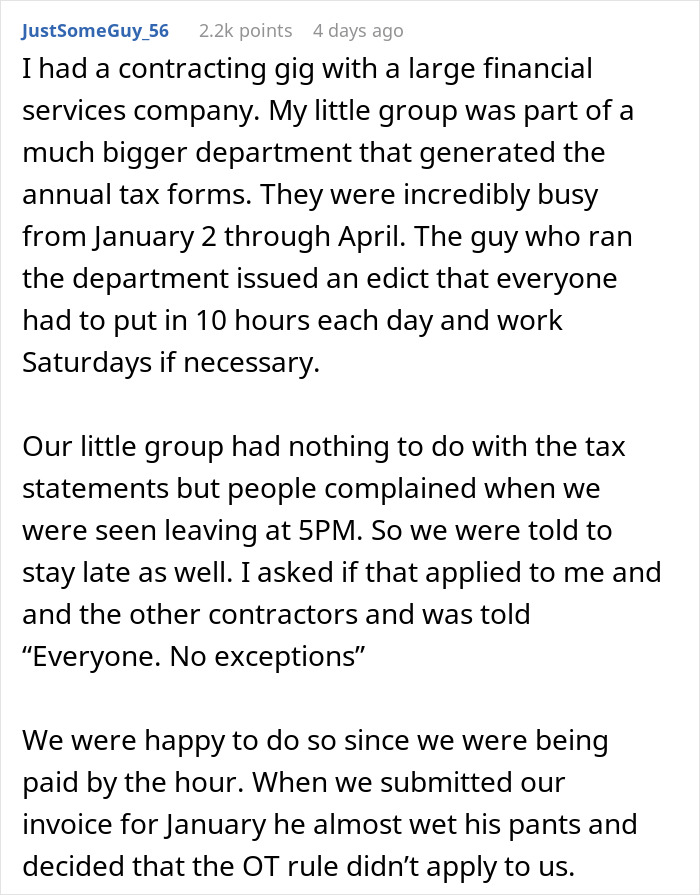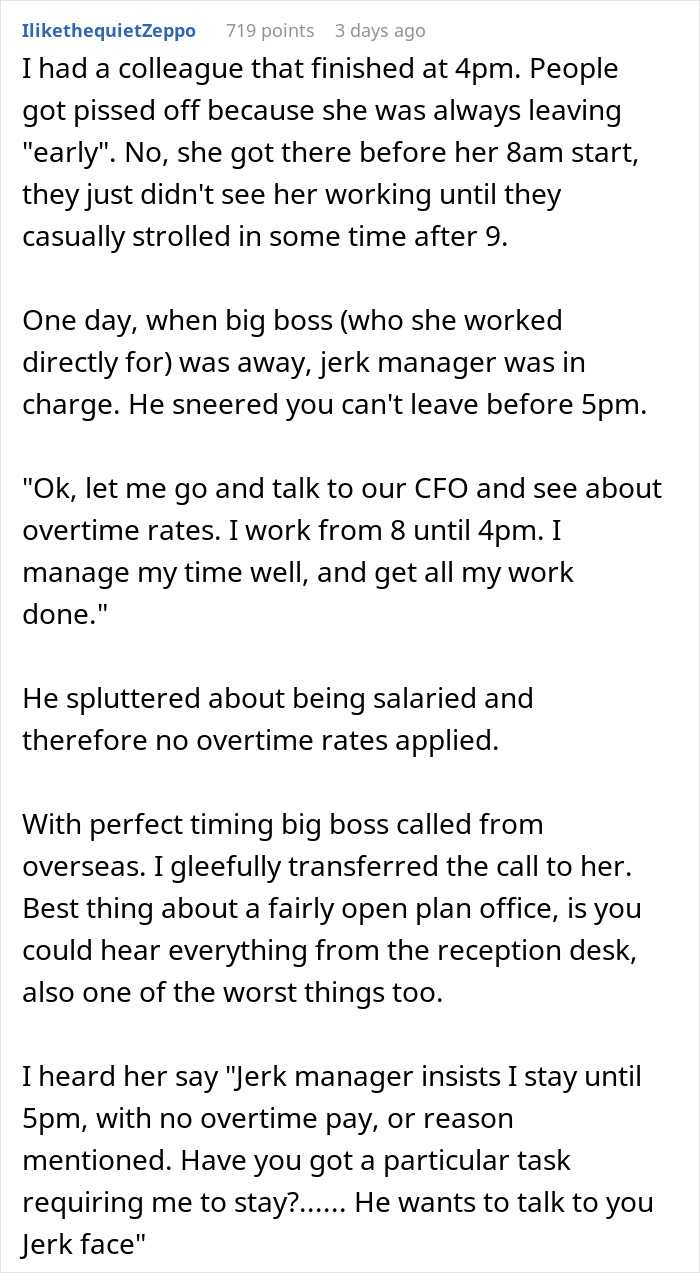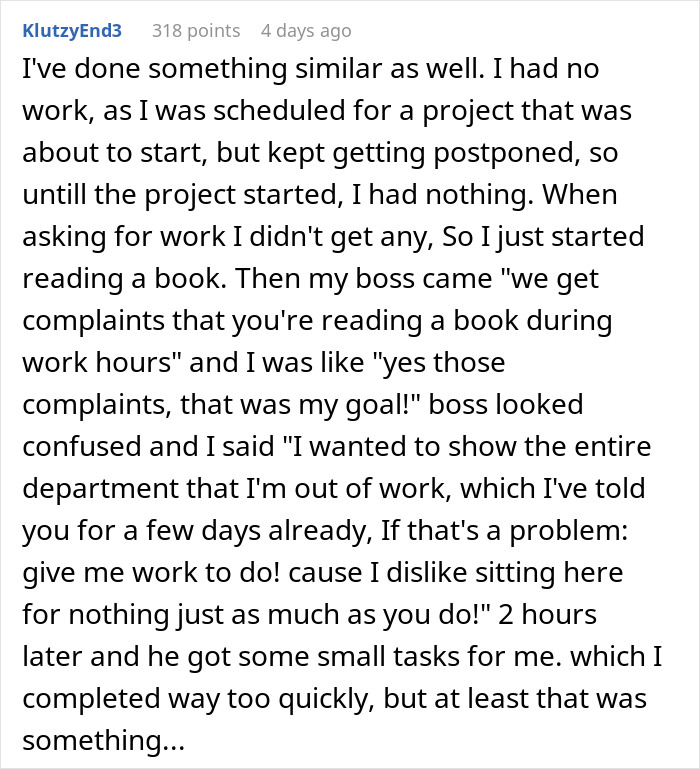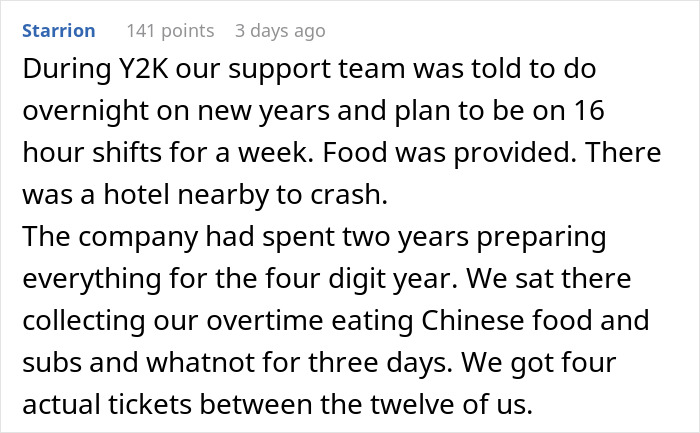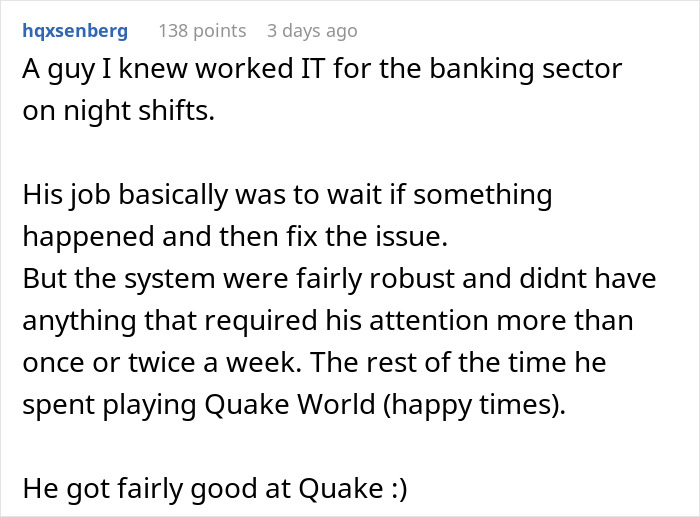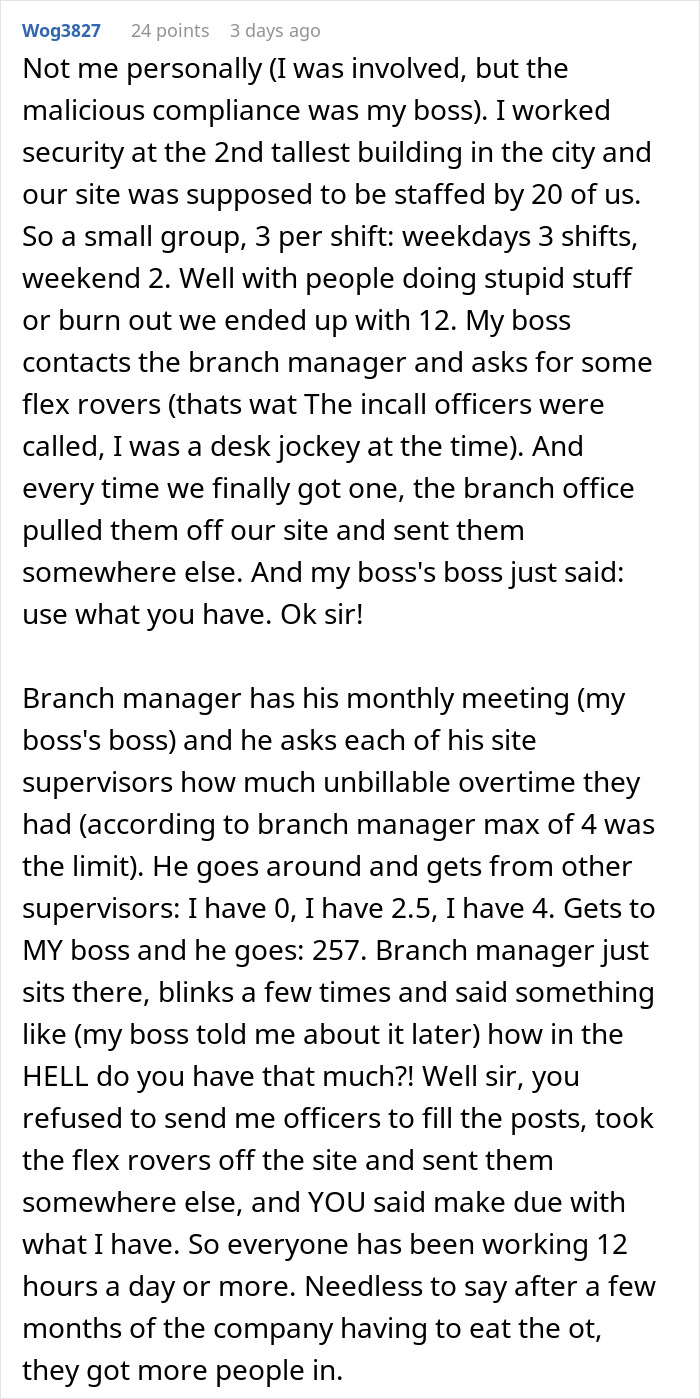Working overtime has its pros and cons. Pro: you can earn more money, which seems more and more relevant as the cost of living rises. In fact, 57% of Americans said in 2022 that they wanted to work overtime because of growing expenses. Con: you risk burnout and health problems as your stress levels might increase.
But sometimes, working overtime can have more advantages than disadvantages, and that’s what happened to this Redditor. Their boss asked them to stay and work late, but the catch was that the OP didn’t have any more work to do that day. So they decided to maliciously comply with the boss’s demand and work overtime and get paid for doing nothing.
It’s rare for employees to want to work overtime, but some employers make it mandatory even if there’s no work to do

Image credits: Mikhail Nilov / Pexels (not the actual photo)
This boss demanded his employee stay to work late because “that’s just how things are done”
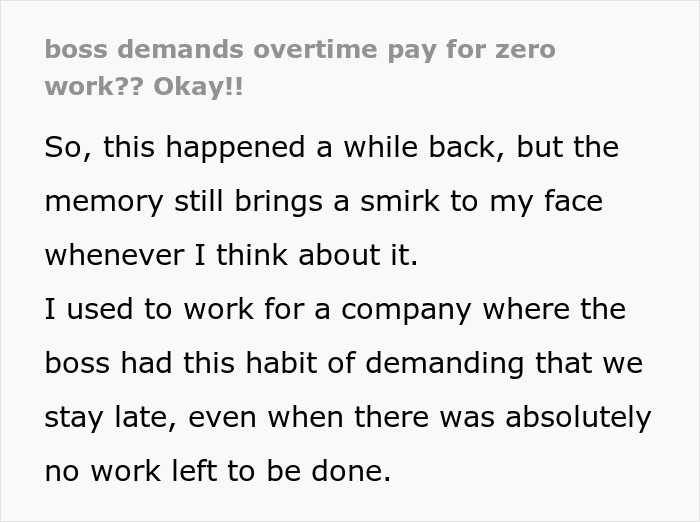
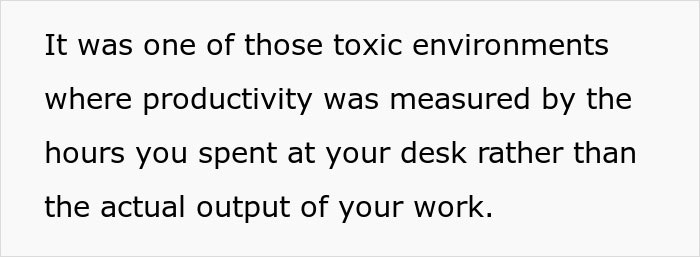
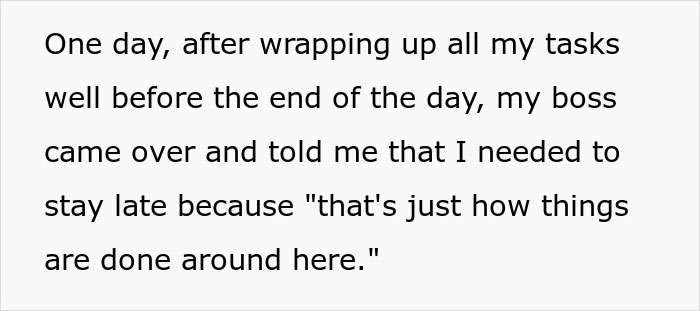
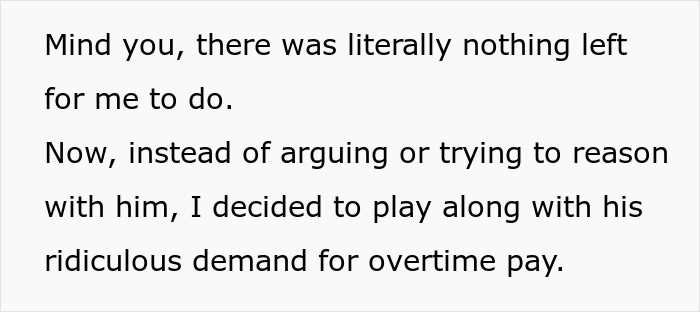

Image credits: Oladimeji Ajegbile / Pexels (not the actual photo)
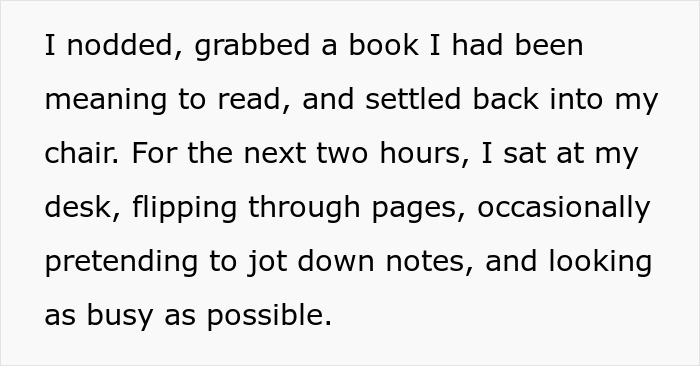


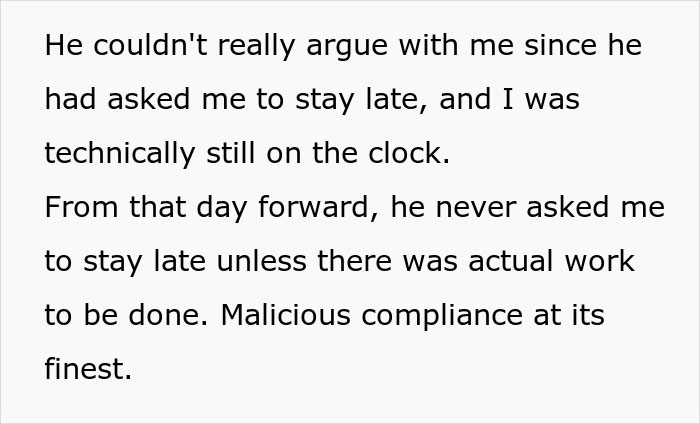
Image credits: Fun-Pin9061

Image credits: Rodeo Software / Pexels (not the actual photo)
A company can make employees work overtime
Typically, people choose to work overtime to meet tight deadlines, grow their careers, or for financial rewards. It’s unusual for an employer to ask their employees to work – or, better yet, pretend to work – overtime. Yet that is what happened to the OP.
And from the OP’s story, it appears that there was no extra work and no tight deadline. One commenter already mentioned a possible reason why OP’s boss might’ve told his employees to work overtime.
The user u/KeepItMovingFolks observed that departments in some companies do this so they can avoid budget cuts the next year. They justify the overtime hours by saying, “There was so much work that there was ‘overtime,'” according to the Redditor.
However, it seems that, in this particular case, mandatory work was compulsory for all employees. If there’s a clause in your contract about working overtime, there’s little you can do. New York-based law firm Clienti & Cooper writes that a company can fire an employee for refusing to work the mandated overtime. Another option is to discipline or demote them.
So it seems like, in this case, the OP had no choice but to comply with their boss’s demand to work overtime – no matter if there was any work to do or not. Using overtime to not get any budget cuts the next year is also mere speculation. It doesn’t exactly explain the boss’s irritation at seeing the OP slacking off at their desk.

Image credits: Kampus Production / Pexels (not the actual photo)
Working overtime doesn’t necessarily increase productivity
Of course, there are hardly any losers in this story. The OP will get their extra pay for staying late at work. So it’s not like the boss tricked them into doing mandatory overtime without extra pay. Still, it would be nice to know that mandated overtime is there not just because that’s how things are supposed to be but because it helps with productivity.
However, overall research shows that overtime does not increase productivity. In 2015, CNBC shared research that once workers hit the 40-hour-a-week mark, their productivity starts to decline. What’s more, it takes a sharp dive once workers reach 50 hours a week.
2023 research from the business-to-business marketplace Expert Market shows that increased work hours don’t correlate with increased productivity. Researchers examined workforces in 40 countries and came to this conclusion. Luxembourg took first place, where employees worked 1,473.3 total hours and earned $96.52 per person per hour.
In the U.S., in contrast, the average salary was $42.18 per person per hour. But the total hours worked was also significantly higher – 1,810.9. Workers in Germany worked the fewest hours – 1,340.9. Yet they still produced $47.09 per person per hour.
Commenters praised the OP for maliciously complying with the boss’s demand


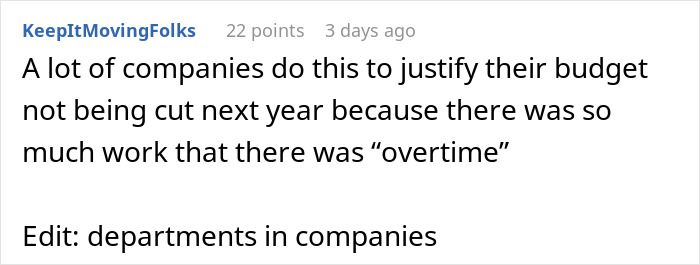
Others shared similar absurd stories about working overtime
